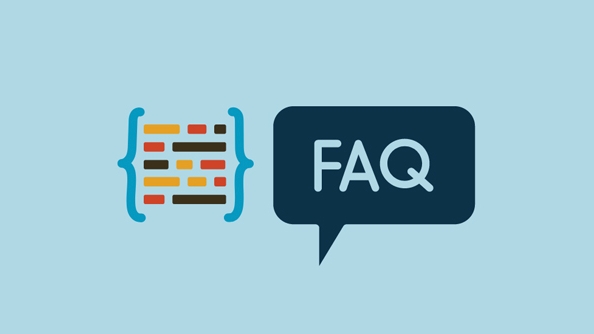Use the Windows virtual desktop to switch shortcut keys to quickly operate. The answers and key points are as follows: 1. The left and right arrows of Win Ctrl can be quickly switched between desktops; 2. Create and switch to a new desktop with one click; 3. Win Ctrl F4 closes the current desktop (multiple desktops are required); 4. Hold down Shift to drag the window or right-click to select "Move to" to transfer applications across desktops; 5. Select the window with Alt Tab and press the Win Ctrl Shift arrow key to move the window. These techniques can significantly improve multitasking efficiency.

Switching between virtual desktops in Windows doesn't have to be slow or confusing. Once you know the right shortcuts and a few tips, it becomes second nature — especially if you're juggling multiple tasks or apps.

The Basic Shortcut: Win Ctrl Left/Right Arrow
This is your go-to method for switching between desktops quickly.
- Win Ctrl Left Arrow takes you to the desktop on the left (the previous one).
- Win Ctrl Right Arrow moves you to the desktop on the right (the next one).
It works no matter where you are in Windows — even inside apps. Just press and release, and you'll jump instantly to the next desktop. No need to use your mouse or go through the Task View menu every time.

Create and Switch with One Shortcut: Win Ctrl D
Want to create a new desktop and switch to it all at once?
- Press Win Ctrl D , and a new desktop gets added and activated immediately.
You can do this multiple times to build up a set of desktops for different purposes — like one for work apps, another for web browser, and maybe a third for games or media.

Pro tip: If you already have several desktops, using this shortcut still creates a new one and switches to it, keeping your flow going.
Close a Desktop with a Keyboard Shortcut
If you want to clean things up fast, here's how:
- Press Win Ctrl F4 to close the current desktop (but only if there's more than one).
Be careful though — this closes the whole desktop, not just a window. Any open windows on that desktop will close too unless you move them first.
Bonus Tip: Move Windows Between Desktops Fast
Sometimes you'll want to shift an app window from one desktop to another. Here's how:
- Hold Shift while dragging a window in Task View to move it to another desktop.
- Or right-click the window in Task View and choose “Move to” then pick a desktop.
And if you're keyboard-focused:
- Use Alt Tab to select a window.
- Then hit Win Ctrl Shift Arrow key to send that window to a different desktop.
That's basically all you need to know. It's not complicated, but knowing these shortcuts make managing multiple desktops way smoother.
The above is the detailed content of Shortcut to switch between virtual desktops Windows. For more information, please follow other related articles on the PHP Chinese website!

Hot AI Tools

Undress AI Tool
Undress images for free

Undresser.AI Undress
AI-powered app for creating realistic nude photos

AI Clothes Remover
Online AI tool for removing clothes from photos.

Clothoff.io
AI clothes remover

Video Face Swap
Swap faces in any video effortlessly with our completely free AI face swap tool!

Hot Article

Hot Tools

Notepad++7.3.1
Easy-to-use and free code editor

SublimeText3 Chinese version
Chinese version, very easy to use

Zend Studio 13.0.1
Powerful PHP integrated development environment

Dreamweaver CS6
Visual web development tools

SublimeText3 Mac version
God-level code editing software (SublimeText3)
 Google Translate Picture | Translate Text in Images - MiniTool
Jul 12, 2025 am 12:57 AM
Google Translate Picture | Translate Text in Images - MiniTool
Jul 12, 2025 am 12:57 AM
This Google translate picture guide shows you how to translate text from an image. If you are looking for more computer tips and solutions, you can visit php.cn Software official website where you can also find some useful computer tools like php.cn
 How to Install Device Drivers Manually on Windows 11/10? - MiniTool
Jul 06, 2025 am 12:15 AM
How to Install Device Drivers Manually on Windows 11/10? - MiniTool
Jul 06, 2025 am 12:15 AM
If your Windows 11/10 computer doesn’t automatically the latest versions of device drivers, you will need to manually install them. In this post, php.cn Software will show you 3 different methods to manually install drivers on your device.
 How to Amplify/Boost/Increase Microphone Volume Windows 11? - MiniTool
Jul 06, 2025 am 12:27 AM
How to Amplify/Boost/Increase Microphone Volume Windows 11? - MiniTool
Jul 06, 2025 am 12:27 AM
This post delivered by php.cn official web page introduces three methods to improve microphone volume and boost its performance, in Control Panel, via Settings, and by Device Manager. Read the below content to view details.
 what is an operating system
Jul 11, 2025 am 03:16 AM
what is an operating system
Jul 11, 2025 am 03:16 AM
The operating system is the basic software for managing hardware resources, running programs, and providing user interaction interfaces. It coordinates the relationship between hardware and software and is responsible for memory allocation, device scheduling, file management and multitasking. Common systems include Windows (suitable for office and gaming), macOS (Apple devices, suitable for creative work), Linux (open source, suitable for developers), and Android/iOS (mobile device system). The choice of ordinary users depends on the usage scenario, such as software compatibility, security and customization requirements. How to view system information: Use winver command for Windows, click on the machine for macOS, use terminal commands for Linux, and find the phone in settings. The operating system is the underlying tool for daily use,
 How to Open and Run dxdiag.exe on Windows 10/11
Jul 06, 2025 am 12:23 AM
How to Open and Run dxdiag.exe on Windows 10/11
Jul 06, 2025 am 12:23 AM
This post includes answers for what is dxdiag, how to run dxdiag in Windows 10/11, DirectX Diagnostic Tool’s main functions, and how to update dxdiag.exe driver. php.cn Software also provides many other computer tips and solutions for users. You can
 Best Ways to Fix Windows 11/10 Control Panel Not Opening!
Jul 08, 2025 am 12:01 AM
Best Ways to Fix Windows 11/10 Control Panel Not Opening!
Jul 08, 2025 am 12:01 AM
Have you ever wanted to adjust computer settings to fix some issues but suffered from Control Panel not opening? There is nothing more frustrating than this app not turning on, stopping you from viewing and changing system settings. In this post, mul
 What Is Dell Digital Locker? How to Log in and Use It on Dell PC? - MiniTool
Jul 07, 2025 am 12:28 AM
What Is Dell Digital Locker? How to Log in and Use It on Dell PC? - MiniTool
Jul 07, 2025 am 12:28 AM
What is Dell Digital Locker? How to log into Dell Digital Locker? This post from php.cn provides answers. Besides, you can know how to use your Dell Digital Locker to find software products included with your Dell computer.
 How to Open Windows 11 Computer Management Console in 7 Ways? - MiniTool
Jul 09, 2025 am 12:18 AM
How to Open Windows 11 Computer Management Console in 7 Ways? - MiniTool
Jul 09, 2025 am 12:18 AM
This essay summarized by php.cn Software mainly teaches you how to open Windows 11 Computer Management with Windows Search, Quick Link menu, Run dialog, command prompt, PowerShell, File Explorer, Control Panel, as well as a desktop shortcut.






